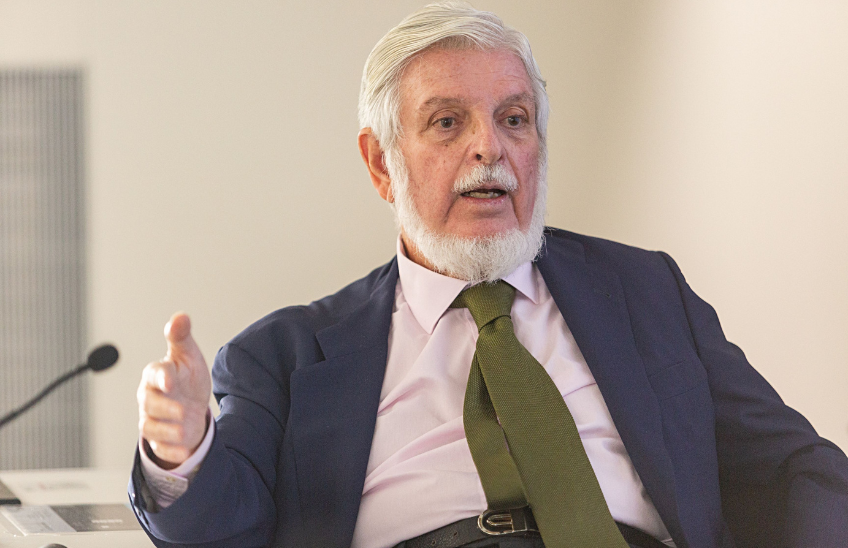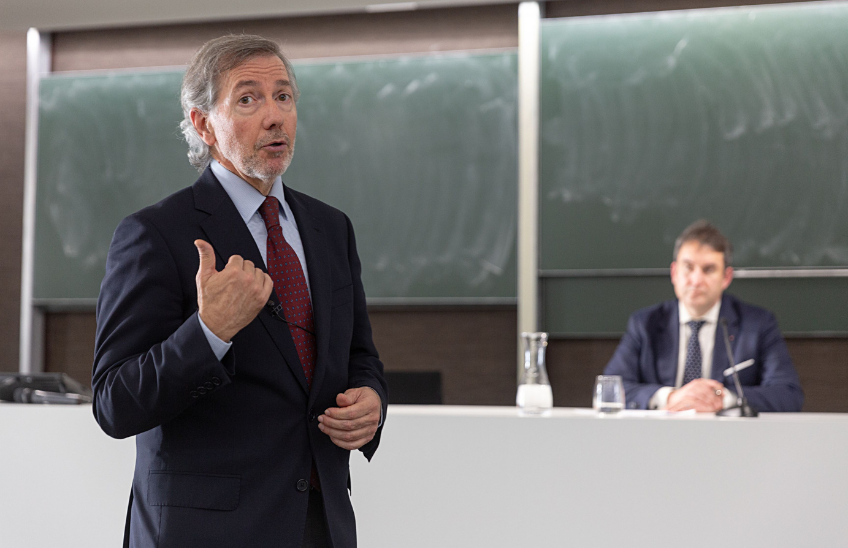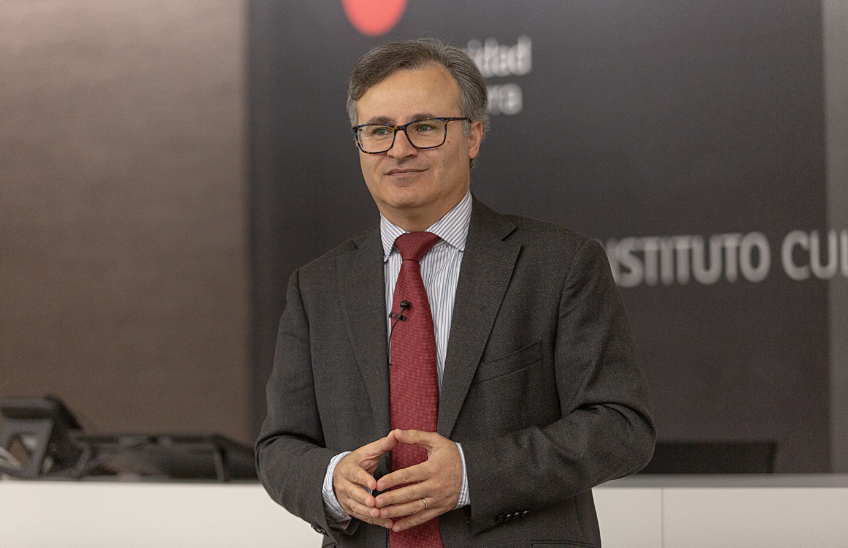2024_03_11_DER_Middle_East_Summit_Alabart
"The demand for fossil fuels is going to decrease and all the economies in the Middle East want to diversify."
The vice-president of Técnicas Reunidas, Manuel Alabart, gave a session at the University of Navarra on the occasion of the Middle East Summit.

FotoManuelCastells/Manuel Alabart, during the session he gave at the Middle East Summit at the University of Navarra.
11 | 03 | 2024
"The deadline is 2050. It is the beginning of the end of fossil fuels. All the countries in the Middle East believe that demand is going to decrease and that is why all the economies in the region want to diversify". This was announced by Manuel Alabart, vice-president of business Técnicas Reunidas, during the session he gave at the University of Navarra on the occasion of the Middle East Summit. The Dubai Climate Summit (COP28), held last December, agreed on the implementation of a transition to abandon the use of fossil fuels by 2050. The farewell to oil, gas and coal is contained in an endorsed text that was supported by almost 200 countries that met in the United Arab Emirates. In this context, Manuel Alabart explained to the students the activity of business in the Middle East and the challenges it will have to face in the near future, marked by the energy transition.
Manuel Alabart's session closed the latest edition of the Middle East Summit, a forum promoted by the Degree of International Relations of the School of Law in which several experts addressed the geopolitical, social and economic challenges facing the region, especially shaken by the recent war between Israel and Palestine.
Israel is precisely one of the few countries in the Middle East where Técnicas Reunidas does not operate, along with Yemen and Iran. The company is dedicated to design engineering and construction of plants for the petrochemical and gas industry, mainly.
business has 60 years of history and currently has 8,500 employees. The international expansion that began in Argentina in 1968 has now reached 50 countries, with a special focus on the Middle East (34 plants), 25 in the European Union, 15 in Latin America and 26 in the rest of the world. "We are the only business that works in the 5 major Saudi refineries", Alabart pointed out.
For the past eight years, Técnicas Reunidas has been in the midst of an energy transition and is committed to the decarbonization of industry. "As long as there is demand, we cannot reduce fossil fuels. Therefore, we are going to focus on decarbonization, on ensuring that our activity does not pollute," Alabart explained. He then referred to the Track program that reflects Técnicas Reunidas' commitment: a program that includes a commitment to hydrogen and its derivatives (Catalina, Conoco/Jera, ACWA Power projects); the circular Economics and biofuels (AMA and Bifuel Rotterdam) and a new management - capture, use and sequestration - of carbon and methane through the Peterhead and Allied Methanol projects.





